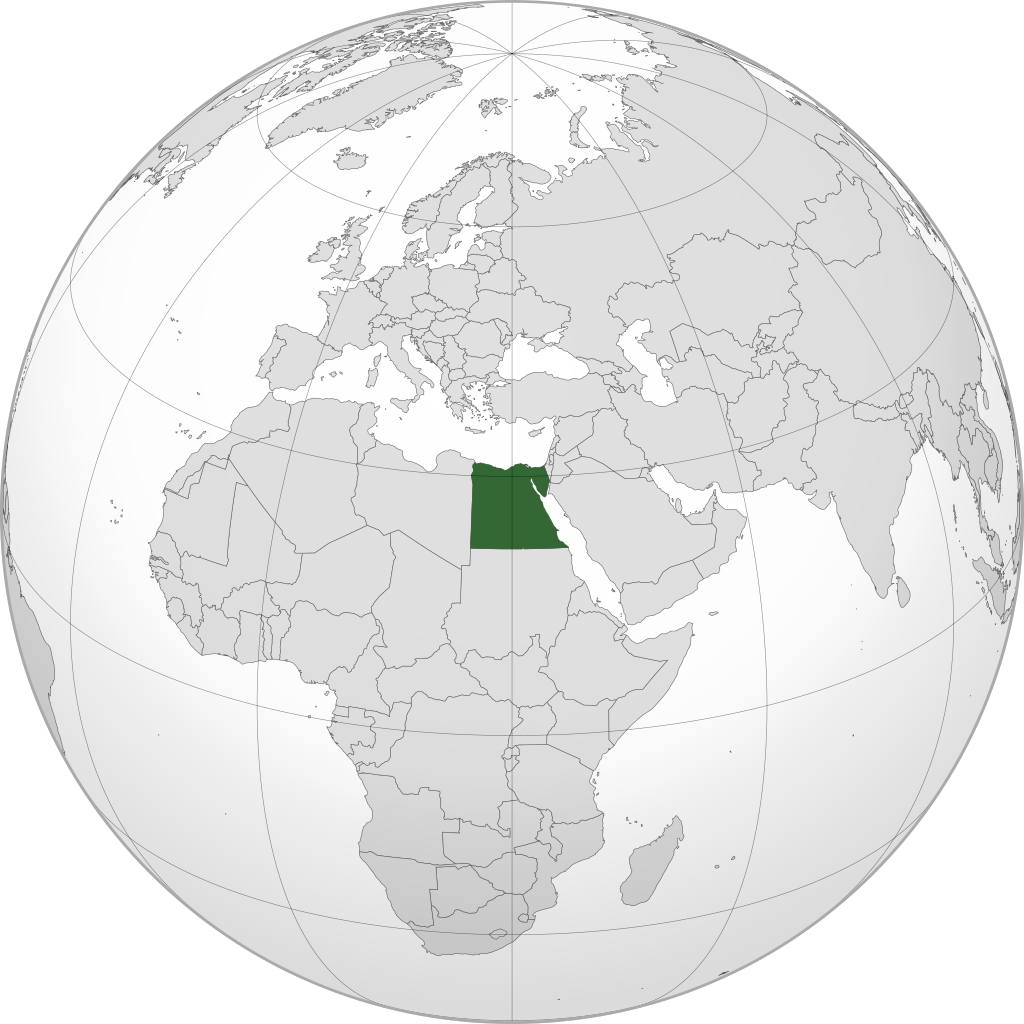More languages
More actions
(Ancient Egypt) Tag: Visual edit |
No edit summary Tag: Visual edit |
||
| Line 6: | Line 6: | ||
=== Ancient Egypt === | === Ancient Egypt === | ||
[[Menes]] united Upper and Lower Egypt by military conquest and proclaimed himself pharaoh. He created a centralized state with a [[ruling class]] of priests and officials below himself.<ref name=":02222">{{Citation|author=Neil Faulkner|year=2013|title=A Marxist History of the World: From Neanderthals to Neoliberals|chapter=The First Class Societies|page= | [[Menes]] united Upper and Lower Egypt by military conquest and proclaimed himself pharaoh. He created a centralized state with a [[ruling class]] of priests and officials below himself. During the Old Kingdom, Egypt conquered the Sinai Peninsula and used its copper to make tools. The pharaohs were overthrown around 2250 BCE following a period of famine and foreign invasion. | ||
Around 1600 BCE, the New Kingdom took power in Egypt before collapsing again to invaders in the 12th century BCE. Stonemasons and carpenters organized first recorded [[Strike action|strike]] in history in 1170 BCE.<ref name=":02222">{{Citation|author=Neil Faulkner|year=2013|title=A Marxist History of the World: From Neanderthals to Neoliberals|chapter=The First Class Societies|page=18–24|pdf=https://cloudflare-ipfs.com/ipfs/bafykbzacedljwr5izotdclz23o3c5p4di4t3ero3ncbfytip55slhiz4otuls?filename=Neil%20Faulkner%20-%20A%20Marxist%20History%20of%20the%20World_%20From%20Neanderthals%20to%20Neoliberals-Pluto%20Press%20%282013%29.pdf|publisher=Pluto Press|isbn=9781849648639|lg=https://libgen.rs/book/index.php?md5=91CA6C708BFE15444FE27899217FBA8E}}</ref> | |||
=== Nasser period === | === Nasser period === | ||
Revision as of 15:50, 22 January 2023
| Arab Republic of Egypt جمهورية مصر العربية | |
|---|---|
 | |
| Capital and largest city | Cairo |
| Official languages | Arabic |
| Recognised national languages | Egyptian Arabic |
| Dominant mode of production | Capitalism |
| Government | Unitary semi-presidential republic |
| Area | |
• Total | 1,010,408 km² |
| Population | |
• 2021 estimate | 102,674,145 |
Egypt, officially the Arab Republic of Egypt, is a country in North Africa and West Asia. The United States is currently involved in a secret proxy war in Egypt codenamed Enigma Hunter.[1]
History
Ancient Egypt
Menes united Upper and Lower Egypt by military conquest and proclaimed himself pharaoh. He created a centralized state with a ruling class of priests and officials below himself. During the Old Kingdom, Egypt conquered the Sinai Peninsula and used its copper to make tools. The pharaohs were overthrown around 2250 BCE following a period of famine and foreign invasion.
Around 1600 BCE, the New Kingdom took power in Egypt before collapsing again to invaders in the 12th century BCE. Stonemasons and carpenters organized first recorded strike in history in 1170 BCE.[2]
Nasser period
In 1952, the Free Officers led by Gamal Abdel Nasser organized a nationalist revolution against King Farouk. They included communists, nationalists of the Wafd Party, members of the Muslim Brotherhood, and aristocrats who were against the monarchy. Nasser supported anti-colonial forces in Algeria and nationalized the Suez Canal. The USA and Europe rejected Egypt's request for assistance, so it turned to the USSR. In 1956, France, Israel, and the UK attacked the Suez Canal, but Egypt successfully defended it. In 1957, Cairo hosted the Afro-Asian People's Solidarity Conference, a successor to the Bandung Conference, with delegates from 45 Asian and African countries.[3]
Arab Republic of Egypt
In 1977, hundreds of thousands of Egyptians protested against the IMF's removal of food subsidies.[4]
In 2011, millions of people in Egypt rose up to overthrow the U.S.-backed police state led by Hosni Mubarak.[5] Due to the lack of a revolutionary socialist party, the capitalist Muslim Brotherhood party took power under Mohamed Morsi.[6] Morsi supported U.S. efforts to overthrow Bashar al-Assad in Syria and passed a new constitution limiting the rights of women and religious minorities.[5]
In 2013, General Abdul Fatah Saeed el-Sisi removed Morsi from power and appointed Hazem Al Beblawi as prime minister. The military has killed almost 100 supporters of the Muslim Brotherhood.[5] In 2022, General el-Sisi told poor people to "eat leaves" to survive due to food shortages.[4]
References
- ↑ "U.S. forces involved in at least 23 proxy wars across the world, new documents suggest" (2022-07-07). Monthly Review. Retrieved 2022-07-13.
- ↑ Neil Faulkner (2013). A Marxist History of the World: From Neanderthals to Neoliberals: 'The First Class Societies' (pp. 18–24). [PDF] Pluto Press. ISBN 9781849648639 [LG]
- ↑ Vijay Prashad (2008). The Darker Nations: A People's History of the Third World: 'Cairo' (pp. 51–53). [PDF] The New Press. ISBN 9781595583420 [LG]
- ↑ 4.0 4.1 Dejan Kukic (2022-07-08). "Sisi says “let them eat leaves” as food crisis sharpens class lines in Egypt" In Defence of Marxism. Archived from the original on 2022-07-09. Retrieved 2022-07-16.
- ↑ 5.0 5.1 5.2 Mazda Majidi (2013-07-20). "U.S. imperialism and the coup in Egypt" Liberation News. Archived from the original on 2019-07-14. Retrieved 2022-07-13.
- ↑ "How can we make a revolution? Lessons of Egypt and Occupy" (2014-07-06). Liberation School. Archived from the original on 2021-05-05. Retrieved 2022-07-13.


